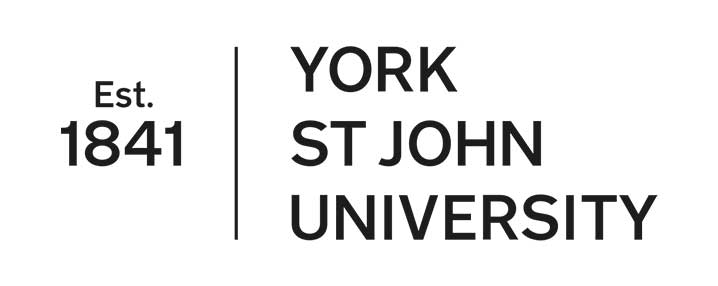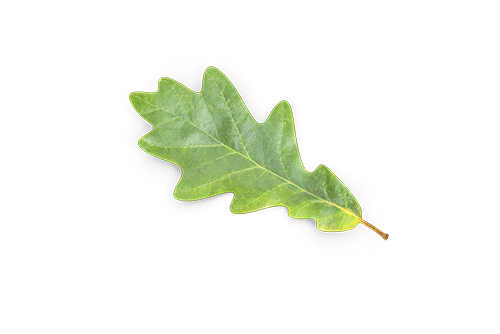Sustainable Global Experience™ Online
Sustainable Global Experience (SGE) is a short online programme with Carbon Literacy at its core. Through this programme, we strive to make climate education accessible to every student.

Overview
SGE Online is a 5-day sustainable development study programme.

Phase 1 - Carbon Literacy Training
This training is developed by academics at Manchester Metropolitan University (UK) and the University of Queensland (Australia). It’s accredited by the Carbon Literacy Project and delivered by Pagoda Projects’ certified Carbon Literacy Facilitators. Key topics include:
- The Definition of Greenhouse Gases
- International Carbon Footprints
- International Vulnerability to Climate Change
- The Carbon Footprint of Food & Travel
- The Urgency to Taking Action on Climate Change
- Spheres of Influence
- Communicating (Climate) Change
- Energy Behaviours & Carbon Savings
- Imagining a Zero Carbon World
- The Role of Education in Delivering Zero Carbon
Phase 2 - Online Activities
Students participate in a series of online activities and discussions relating to the programme’s SDGs. Through webinars, workshops and group projects and presentations, they’ll explore global issues relating to climate change and carbon reduction. Example activities include:
- Group orientations, activities and introductions
- Webinars with industry professionals on sustainability issues
- Workshops on Climate Change and the Theory of Change
- Online skills courses to boost employability and competency
- EBL group projects and online presentation sessions
- Live online events and networking opportunities
About Pagoda Projects
Pagoda Projects is a leading provider of internships and sustainable global experiences. We work with universities and companies around the world to provide quality internships that enhance students’ international employability.
Programme Breakdown
SGE Online explores sustainable development in theory and practice. Students will:
+ Build core skills in online learning, critical thinking, organisation and communication
+ Become Carbon Literate certified, gaining a uniquely-coded Carbon Literacy certificate
+ Understand the cause and effects of climate change and ecological issues on a global scale
+ Gain knowledge of the UN’s SDGs as a framework for understanding climate issues
+ Establish actionable outcomes for reducing carbon production at home, work and in everyday life
+ Develop confidence in communicating about climate change
+ Gain insight into global industry trends and career options in sustainability
+ Develop a wide range of skills for the workplace, including critical thinking, leadership and collaboration
Ensuring all students feel happy and supported during this programme is our number one priority. Our outstanding support for students on this programme includes:
+ Experienced programme leaders who are fully trained in mental health
+ An onboarding session to introduce students to one another and set expectations
+ Online support from our friendly team to ensure they successfully complete their Carbon Literacy Training and pledges
+ Automatic enrollment into our alumni network provides news, events, graduate job openings and opportunities for further study
Carbon Literacy Certification is widely recognised as a personal and professional commitment to tackling climate change. All our SGE programmes include 12 hours of Carbon Literacy Training, accredited by Manchester’s Carbon Literacy Project.
Students complete two online courses (3-4 hours), attend two live training sessions (8 hours) and submit a pledge (1-2 hours) to become certified in Carbon Literacy. Upon completion, students will receive a personal certificate from the Carbon Literacy Project, which they can show to future employers to prove their competency when it comes to sustainability.
Carbon Literacy Training Outcomes:
+ Gain certification in Carbon Literacy, contributing to a more climate-literate society
+ Develop an understanding of carbon production as a key contributor to climate change
+ Establish actionable outcomes for reducing carbon production at home, work and in everyday life
+ Build core skills in online learning, critical thinking, organisation and communication
+ Develop confidence in their understanding of climate change and how to take action against it
Climate Fresk
Climate Fresk is an interactive workshop on the science behind climate change. Built on the latest IPCC report data, students will gain an understanding of the cause-and-effect relationships between climate change-induced issues. Climate Fresk is neutral and presents only objective scientific facts.
During the workshop, students will develop an understanding of humanity’s impact on the climate and discuss individual and collective solutions to mitigate climate change.
Outcomes
+ Raises awareness of the cause-and-effects of climate change and ecological issues
+ Bridges the gap between scientific climate knowledge and what the general public knows
+ Helps to build a community
Theory of Change
This workshop, run by the Netherlands-based systems-thinking agency Metabolic, teaches students how to create a Theory of Change. A theory of change articulates how we believe change will happen, and as a result, how we plan to invest time and resources to contribute to that change. It shows the logical connections between our activities as individuals or an organisation and our intended impact.
Metabolic has vast experience in the fields of food and land use, cities and regions, products and service, finance, governance and mindset. The Theory of Change framework creates a visual model and narrative about the desired or required impact, the necessary output and the intended outcomes.
As part of the programme, Pagoda Projects hosts a webinar to discuss global, business-related sustainability issues and trends in partnership with an industry expert. Students will gain a greater understanding of global industry trends and career options in sustainability. Additionally, it’s a great chance for students to ask questions and network – with one another and experts in the industry.
Some of the questions to be explored:
+ What key issues shaping the sustainability agenda should leaders have on their radar this year?
+ What are the major opportunities for corporate leadership on sustainability in 2023?
+ How should companies act on them?
Students will complete an Enquiry-Based Learning (EBL) group project and presentation. EBL assignments encourage students to ‘learn through experience’ and develop their understanding by investigating and asking questions. It’s a great opportunity for students to put key skills and theory into practice.
The Task
To enhance their understanding of the UN’s Sustainable Development Goals (SDGs), students will learn about the Environment, Social and Governance (ESG) policies as a metric for measuring a company’s performance of environmental and social responsibilities. Students are required to apply these concepts to the operations of a real business.
In groups, students are asked to pick a company and decide which SDGs it is, or could be, acting upon. Using a SWOT analysis, they must research and evaluate their company’s performance of their ESGs, calling out any evidence of greenwashing. Students must present their findings and make recommendations for improvement.
Outcomes
+ Gain knowledge of the UN’s SDGs as a framework for understanding climate issues
+ Develop an awareness of sustainable business practices and unethical greenwashing tactics
+ Apply conceptual understandings of sustainability to real-life situations
+ Develop a wide range of skills for the workplace, including our eight key competencies:

Programme Details
Carbon Literacy Project
Carbon Literacy is “an awareness of the carbon dioxide costs and impacts of everyday activities, and the ability and motivation to reduce emissions, on an individual, community and organisational basis.” More than 1,700 organisations across the UK and internationally have empowered their teams with Carbon Literacy Training including the NHS, the BBC, and Manchester City Council.
On this programme, you’ll complete 12 hours of Carbon Literacy Training and submit a pledge to gain certification from the Carbon Literacy Project. This is widely recognised as a personal and professional commitment to tackling climate change.
Pagoda Portal
The Pagoda Portal is a digital hub for our student community. You can use it to network with other interns, locate key information and register for online skills courses.
Our online skills courses focus on Employability, Digital Competency and Intercultural Fluency. They’ll provide you with the skills and agility needed for a global and ever-changing workplace
Programme Dates
August 19th – August 23rd 2024
Application Process
First you need to submit your interest to Pagoda to be considered for this programme. Places are limited so make sure you fill out the form at the bottom of this page ASAP!
Next you’ll also need to complete a York St John University application as well. It is very important you complete both forms to be considered for this programme. Please follow this link to the YSJU form.
Please contact the Pagoda Team if you have any questions.




Register your interest
Currently there is no funding confirmed for Summer 2025 programmes, but leave your details below and we’ll let you know if that changes


